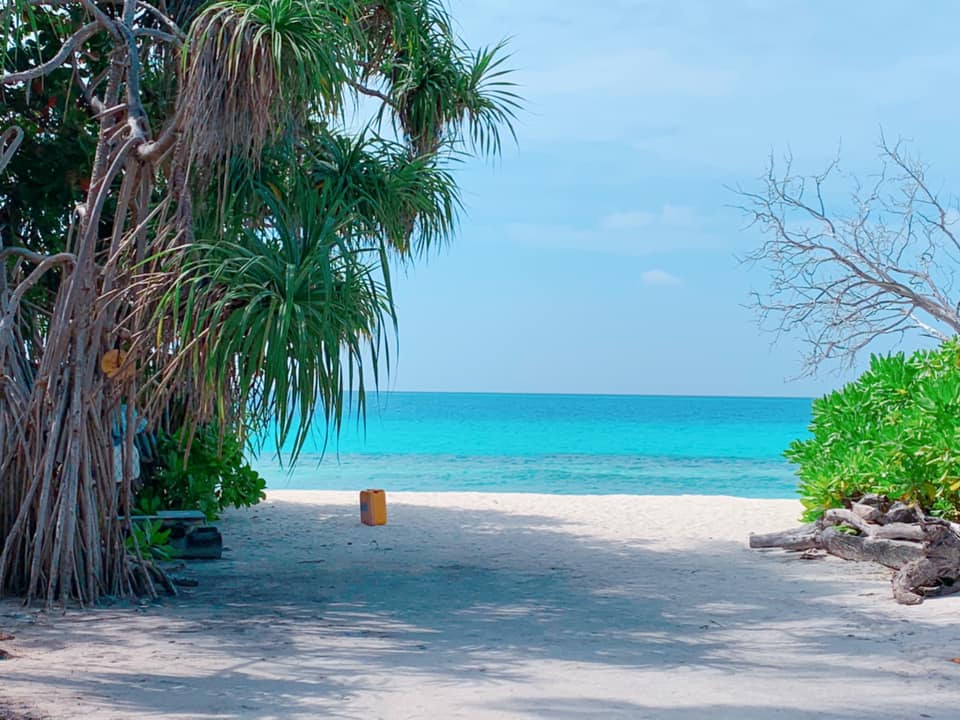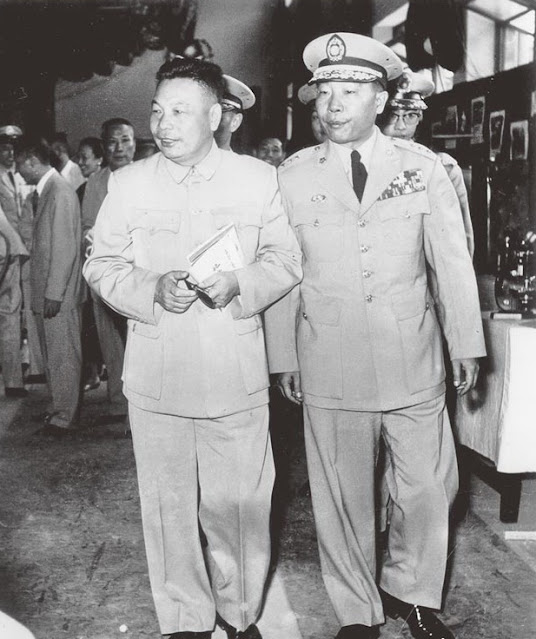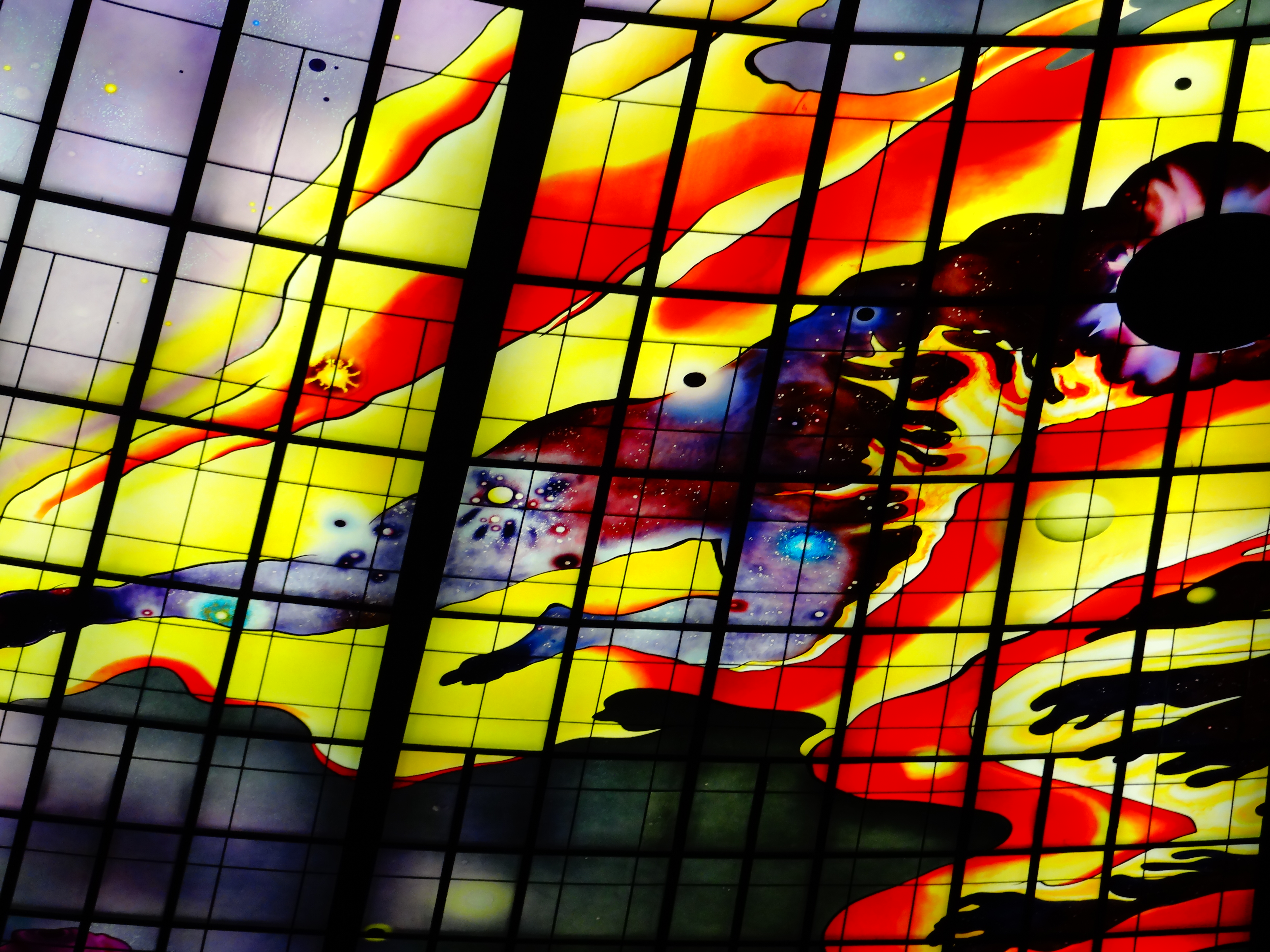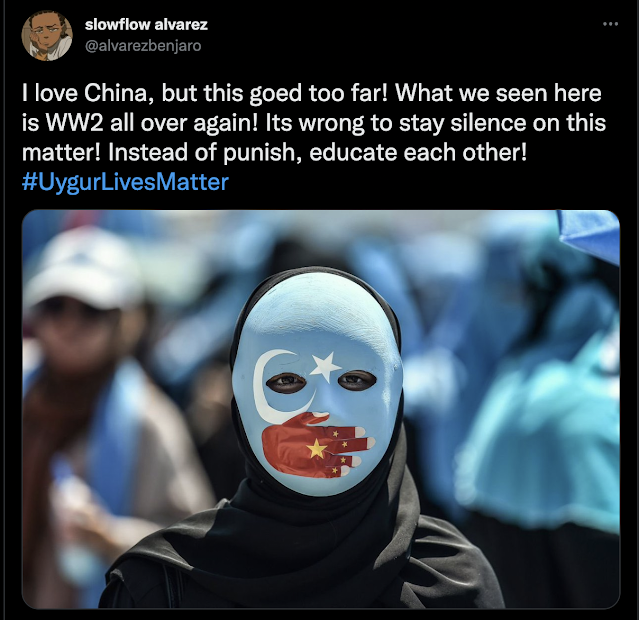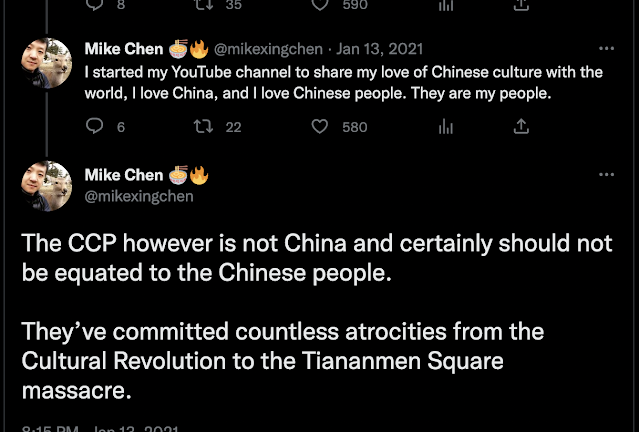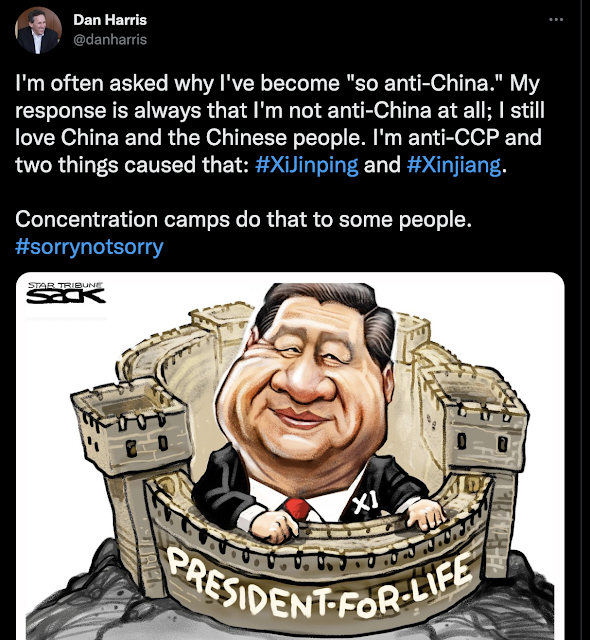I don't think of the Economist as an accurate source of news on Taiwan. They report on Taiwan with some frequency, but in terms of relative merits to flaws, their articles are at best middle-of-the-road. At worst, they're unequivocally terrible. Occasionally, the magazine puts out something surprisingly good on Taiwan, but don't ask me for an example from the past right now as I can't think of one.
One of the chief problems with their Taiwan coverage hounds other publications as well: their disturbing tendency to deny Taiwan any agency in its own narrative. Stories ostensibly about Taiwan might barely reference what's actually going on there; to a reader who doesn't actively consider what they're reading, they might come away with the vague, unsettling impression that Taiwan is a barren rock that other countries fight over, just a piece of land to be won or lost.
It would be easy from this sort of writing to assume Taiwan doesn't have any people living on it at all.
Great powers fight over it, threats are levied against it, claims are made on its territory, but Taiwan might as well be Olive Oyl (thanks to a friend for that analogy) -- standing their whimpering in the general vicinity of the muscle men who want to possess her but with no apparent personality of her own. Whatever Taiwan itself wants is apparently not relevant to its own story or future.
I don't know why reporters do this. I would imagine at least some of them have actually been to Taiwan, met and talked to Taiwanese people. They can't possibly think Taiwan is merely some trophy to be won or lost, a square on a chessboard that, if it could express itself, wouldn't have anything to say. They can't possibly believe that the views of Taiwanese people exist only as reflections of whatever China or the US want them to think.
And yet, this is how they write. It is simply bad reporting and in any other context, I daresay it would be more robustly called out as the racism that it is.
With this in mind, two articles appeared recently in The Economist that show the effect better reporting can have on disseminating global understanding of Taiwan. I'd like to compare them, to elucidate what can be considered good writing on Taiwan, and differentiate it from the crap.
"America and China are preparing for a war over Taiwan", which appeared in the Storm Warning brief with no byline, is pretty bad, though not wholly irredeemable. "Taiwan is a vital island that is under serious threat" by Alice Su is far superior.
You can tell by the titles: the former foregrounds the US and China, implying that they are making similar or parallel moves regarding Taiwan, although this is not the case. China is preparing to start a war in Taiwan. The US is preparing for the possibility of having to help Taiwan defend itself. Taiwan may as well be an inanimate pawn in this headline, a battered toy for two cats who've got the zoomies to tussle over.
The latter references Taiwan in the first word rather than the last, and immediately references something about it. The US and China don't even appear in it. "Vital" can mean something like vibrant, or lively -- but it can also mean crucial or (strategically) important. Both are true, and I'd argue the more human definition is just as meaningful as the geostrategic one.
Of course, writers don't typically get final say over the titles of published articles. The Storm Warning article might have been mauled by some squash-brained editor who didn't know better, but have solid content.
This was not the case. The article is just as bad as the headline implies. Here's how it starts:
Their faces smeared in green and black, some with Stinger anti-aircraft missiles on their packs, the men of “Darkside”—the 3rd battalion of America’s 4th marine regiment—boarded a pair of Sea Stallion helicopters and clattered away into the nearby jungle. Their commanders followed in more choppers carrying ultralight vehicles and communications gear. Anything superfluous was left behind. No big screens for video links of the sort used in Iraq and Afghanistan: to avoid detection, the marines must make sure their communications blend into the background just as surely as their camouflage blends into the tropical greenery. The goal of the exercise: to disperse around an unnamed island, link up with friendly “green” allies and repel an amphibious invasion by “red” forces.
All I can say is woof. I can't fault the writing style, as the delayed lede allows for creative scene-setting that draws the reader in. But come on! We've got all this big macho US army energy, references to Iraq and Afghanistan, Taiwan as an "unnamed" island. I understand why all these narrative choices were made, but the cumulative effect is not one of a real island full of real people whose choices are at the center of it all, but two massive military industrial complexes itching to go at it.
I hate defending the US and will do so as rarely as possible, but just by the facts, the US is not planning to invade Taiwan as they did Iraq or Afghanistan. That would be China's intention.
I know the opening doesn't say this, and does not really criticize US military involvement in Taiwan -- in fact, I get the sense the author supports it -- but it does draw an implicit connection, and I fear this is what readers will take away.
Compare that to the opening of Su's piece:
When Taiwan’s president, Tsai Ing-wen, announced the extension of military conscription in December 2022, she called it an “incomparably difficult decision”. Taiwan’s young were previously subject to only four months of conscription. Starting from 2024, they will serve a year each, with improved training. “No one wants war,” she said. “But peace will not fall from the sky.” Taiwan must prepare for war, she added, to prevent it.
Without hesitation, the article dips into the situation in Taiwan, providing crucial context about the decisions Taiwan is making and why. Readers get the immediate sense that Taiwan is defined not just by its land but its people, and they have a government and thoughts and feelings and choices and lives. The reader is invited to consider Taiwan for its own sake, and what it might feel like to be in Taiwan with this huge threat looming over you.
The following paragraphs follow up on this, and the focus does not shift from Taiwan until the third paragraph.
To be clear, I don't agree with everything Su says here. She calls Taiwan "numb to China's threat" (which is not true) and asks "whether" Taiwan is willing to defend itself. People aren't numb, they're tired and worried and don't want to fret themselves into migraines and insomnia every day, so they compartmentalize it in order to live normally. It's exhausting to spend each day wondering at what point in the future your neighbor's going to press the button on those missiles he's got pointed at you.
I don't think Taiwan has "no consensus on who they are", either. Most Taiwanese identify as solely Taiwanese; the vast majority who identify as both Taiwanese and Chinese prioritize Taiwanese identity. Most say they are willing to defend their country, and most consider Taiwan's current status to be sufficient qualification to be considered independent. There is virtually no support for immediate unification and not very much for eventual unification, either. Most don't want a war, which is probably the main reason why they say they prefer "the status quo". Of course, I can't be sure, this is just a feeling based on anecdotal observation. Frozen Garlic discusses this in his redux of the relevant poll; I suggest you read it.
Anyway, that sure sounds like a string of consensuses to me! Exactly what kind of country Taiwan is, and how it will defend itself against China, are still relevant questions and ongoing debates. Whether it is a country and whether it should unify with China, however? Though there will always be dissenters, those questions seem fairly settled.
That said, for the purposes of comparing two journalistic approaches to Taiwan, these are the nitpicks of a crotchety old git who has the diabeetus and puts ice cubes in her tea. I shake my cane at you! But truly, Su's article is pretty good. It takes every opportunity to foreground Taiwan and Taiwanese agency, and thus implies to the reader that this is a place that matters, these are people not too different from you, and they matter. It shows the reader that Taiwan has its own internal workings, can make its own decisions, and has its own views on China's aggression.
This implies that the possibility of war is not because two superpowers are bored and feel like duking it out over some rock. It's because China wants to annex Taiwan, and the Taiwanese do not want this.
Taiwan has agency, and that agency not only matters but is at the core of the conflict: Taiwan is unwilling to do what China demands, and China wants to take their agency away. How would you feel if someone wanted to annex your land, murder your kid for attending a protest, tell you that you don't get a say?
Without it being made explicit, this sort of story asks the reader to consider these questions, perhaps subconsciously. This rings clear throughout Su's piece, even as I may disagree on the details.
In fact, after a few more paragraphs we get this gem, which I consider the nut graf but probably isn't:
As Chinese pressure on Taiwan grows, the Taiwanese look for the world’s support. Taiwan stands “at the vanguard of the global defence of democracy”, Ms Tsai has said. To let it go under would be a devastating step towards the might-is-right world that both Mr Xi and Russia’s Vladimir Putin seem to favour.
Instead of starting off with what's happening in the Taiwan/China/US Torment Nexus (protip: don't create the Torment Nexus) to Iraq and Afghanistan, two places where the US screwed up massively, it chiefly describes Taiwan's critical juncture to the resistance against Putin's war in Ukraine. This is the better analogy.
To be fair, the Storm Warning piece does this too, and compares Xi's irredentism to Putin's. I support this, because it's true. But compare one of their typical paragraphs:
America, meanwhile, is sending more military trainers to Taiwan. The Taiwanese government recently increased mandatory military service from four months to a year. Prominent congressmen have urged President Joe Biden to learn from Russia’s attack on Ukraine and give Taiwan all the weapons it may need before an invasion, not after one has started. Adding to the sense of impending crisis are America’s efforts to throttle China’s tech industry and Mr Xi’s growing friendliness with Russia.
Taiwan has not made up its mind how or even whether to defend itself. It is at once the “most dangerous place in the world” yet numb to China’s threat. Only since Russia’s invasion of Ukraine has serious debate about a possible Chinese invasion become normal. That is in part because China’s Communist Party is engaged in an information war designed to sow confusion. It also reflects Taiwan’s tortuous history and politics.One frames the Ukraine conflict mostly in terms of what the US and China think about it. The other uses it to help the reader understand Taiwan's internal workings.
When it can finally turn its gaze from the US and its Big Tank Energy, it talks about what China claims and how it acts vis-à-vis Taiwan:
China’s Communist leaders have claimed Taiwan since Nationalist forces fled to it after losing a civil war in 1949. America has long pledged to help the island defend itself. But in recent years, on both sides, rhetoric and preparations have grown more fevered. China’s forces often practise island landings. Its warships and fighter jets routinely cross the “median line” (in effect Taiwan’s maritime boundary) and harass military ships and planes of America and its allies. After Nancy Pelosi, at the time the Speaker of America’s House of Representatives, visited Taiwan last year, China fired missiles towards it.
These are all important details, but shifting focus from the US, everything is now centered around China. The two countries' preparations are "fevered", there are warships and fighter jets and and rhetoric and missiles and some other kind of ships and Nancy Pelosi.
What there isn't? Anything Taiwan might think or want or even an acknowledgement that 23.5 million people maybe have a role to play and a lot at stake.
It gets worse. Later on, if you're still reading this Decline and Fall of the Roman Empire-sized article (Brendan's joke about that book: "it takes as long to read as it took to happen"), you get this:
Given the appalling consequences, would America and China really go to war? Chinese officials say their preferred option is still peaceful unification, and deny there is any timetable for an attack.
OKAY, but Taiwan is never going to accept or choose peaceful unification because they see how badly the Chinese government treats its own citizens, including but not limited to Hong Kong, Tibet and East Turkestan! That "peaceful unification" is not possible, that Taiwan has an opinion on this, that the world has to lie to China to prevent invasion (for now) isn't mentioned -- only that China claims it wants peace. That China knows Taiwan will never choose unification, and yet has not renounced the use of force, should tell you everything about what China wants: war. If they didn't, they'd commit to no war, because it is very easy to not invade your neighbor.
What's more, this paragraph not only never explores how Taiwan feels about the "appalling cost of war" even though they'd be the most affected, it also implies that China might choose to back off from invasion because it would be bad for Taiwan, some of their troops, and the global economy. LOL. Do you think China cares? I don't.
Worse yet, the wording outright states that all this horror would be caused by "the US and China [going] to war", not China starting a war.
It continues like this; I read and read, and everything was US, China, US, China, war, war, invasion, imminent war. In many paragraphs Taiwan wasn't even mentioned even though this is where the war would take place! You don't get any meaningful engagement with Taiwan's potential actions until a paragraph somewhere in the potbellied middle of this extremely long piece.
Is it a counter to China's claims, which appear near the top? Perhaps some insight into what is happening in Taiwan right now as they face this threat? Nope. It's more guns and bombs and artillery and rockets:
Taiwan’s strategy, meanwhile, is to thwart China’s initial landing or prevent it from bringing enough troops. Taiwanese forces would block ports and beaches with sea mines, submerged ships and other obstacles. Backed by surviving aircraft and naval vessels, they would strike China’s approaching force with missiles and pound disembarking Chinese troops with artillery and rockets. Some PLA texts suggest that Taiwan has underwater pipelines off its beaches that could release flammable liquid. Some of its outlying islands are protected by remote-controlled guns.
The fact that Taiwan's extremely justified refusal to be annexed by China (and China's inability to accept this) is at the core of this conflict is simply not worth mentioning, apparently. It's just Anger McRagersons chucking rockets at each other thousands of miles away. The visuals here imply little islands out in the ocean whose primary feature is guns. The implication? This war is stupid, everyone sucks, and the US should stay out of it. If Taiwan falls, so what? It's some random island in the middle of nowhere, it can't be of any importance. I don't want another Iraq or Afghanistan!
Nevermind that US assistance to Taiwan could be one of the most crucial obstacles standing between Taiwan's subjugation by China, much as the world's support of Ukraine helps Ukraine stave off Russia each day.
Surely readers know Taiwan has people; some might even realize that the population of Taiwan rivals Australia (and how would you feel if Australia were invaded by a hostile foreign dictatorship?). To the writers, however, it may as well be a fortress stuffed with incendiaries and nothing more.
I do understand the point of all this -- it's not meant to be a human story, it's intended to be focused on military tactics. I don't think the article is totally without merit. The various war scenarios provide useful information regarding what a war in Taiwan might actually look like, for readers who don't know. There are worthwhile details about military readiness sprinkled throughout. However, the overall effect is one of BAM BOOM BOOM BANG KAPOW by two big armies over some pile of rocks.
Perhaps we need these sorts of stories. People should be able to learn about what the US is doing abroad, and what it's facing. Isn't there a way to tell that story without ignoring Taiwan almost completely, though?
Su takes a more holistic approach. She continues with the Ukraine analogies and makes the case for Taiwan both from a global economic and internal perspective:
Taiwan also has outsize importance in the world economy. A conflict over Taiwan would do a lot more damage even than Russia’s war on Ukraine. Taiwan makes more than 60% of the world’s semiconductors, which power everything from mobile phones to guided missiles, and 90% of the most advanced sort. Rhodium Group, a research outfit, estimates that a Chinese blockade of Taiwan could cost the world economy more than $2trn.
Taiwan’s leaders know that neither strong democracy nor economic importance is enough. The Ukraine war has taught them that a small country bullied by a bigger neighbour must demonstrate that it has the will to resist. Fight back, and there is more chance that the world will come to your aid. But Taiwan is not ready to fight.
The Storm Warning piece also references the global economy in a very similar paragraph, but never ties it in or brings it back to Taiwan. The best you ever get is this:
A war game by the Centre for Strategic and International Studies, another American think-tank, found that under its “base scenario” Taiwanese, American and Japanese forces typically severed PLA supply lines after about ten days, stranding some 30,000 Chinese troops on the island. Taiwan survived as an autonomous entity, but was left with no electricity or basic services. America and Japan suffered, too, losing 382 aircraft and 43 ships, including two American aircraft-carriers. China lost 155 planes and 138 ships.
Even in a paragraph about the aftermath and cost of war, Taiwan gets one sentence. Then it's back to what America and China lose.
While the Storm Warning piece ostensibly about Taiwan never gets any better about actually including Taiwan in the narrative, it's in the warp and weft of Su's work.
This is what we need more of. Even the military-focused stories should spend more time considering Taiwan's own perspective and role, and what Taiwan has to lose. This is how we get readers to actually see what war would mean, and consider that it wouldn't happen to a place, but to people.
Of course, one can argue that the Economist published both because the angles are so different: one focuses on Taiwan, the other on the US and China. Three players in one drawn-out story. I can understand that, but taken on its own, the Storm Warning piece is almost comical in how actively it ignores Taiwan. The Economist has a paywall, not everyone reads every article (many can't), and there's no way to make a social media post with two fully-displayed link headers. Good intentions or not, the Storm Warning piece on its own erases Taiwan.
Do we really need these US-China Go Boom-Boom pieces? Arguably yes, but they lack crucial context. Could the useful military and war scenario information be included in something a little less dismissive of Taiwan itself? Perhaps stories like tome in this Storm Watch might at least attempt to include the Taiwanese perspective, or even question whether China is right to claim Taiwan, or their "peaceful unification" talk is possible or meaningful?
Then, beyond how many different types of Big Guns and Ships and Rockets the US and China can chuck at each other, readers might understand that this is a country full of people and they play a crucial role in their own story.


